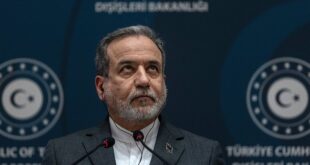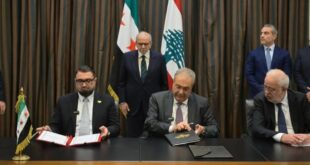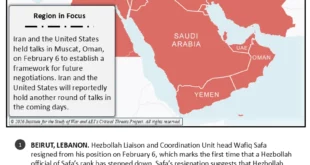French Foreign Minister Bernard Kouchner on Sunday left Lebanon without any breakthrough and after warning of the danger of violence if the eight-month political standoff is not resolved through talks.And on a stopover in Cairo, Kouchner said pressure had to be exerted on Syria and Iran, both backers of Hizbollah, which spearheads the opposition in Beirut, to avoid a new war breaking out in Lebanon.
Despite succeeding in gathering representatives of feuding Lebanese factions around the same table earlier on Sunday, Kouchner said his trip was “just a step, and don’t expect me to resolve Lebanon’s problemsâ€.
Before leaving, Kouchner met at Beirut airport with Spanish Foreign Minister Miguel Angel Moratinos who said Madrid also wanted to help Lebanon find a way out of its crisis.
Spain would “join in efforts to help the Lebanese bring about stabilityâ€, he later said after also holding talks with Lebanon’s Prime Minister Fuad Siniora.
Kouchner flew on to the Egyptian capital to brief the foreign ministers of Egypt and Saudi Arabia and the Arab League secretary general on his Beirut mission.
“Pressure is needed on the environment [of Lebanon], meaning that Syria and Iran must not exercise influence that could lead to war,†he said in a Cairo press conference with his Egyptian counterpart Ahmed Aboul Gheit.
Hizbollah last summer fought a devastating 34-day war with Israel.
The French foreign minister, on his second trip to Lebanon this year, said he would return next month and was considering hosting a second conference similar to the July 14-15 meeting which gathered all Lebanese parties near Paris.
On Sunday, Kouchner lunched at the French ambassador’s residence in Beirut with leaders and representatives of the Western-backed ruling majority and the opposition.
After meeting rival officials on Saturday, Kouchner warned of the danger of violence if the standoff between Lebanon’s political parties is not solved through negotiations.
“If the Lebanese do not resume this necessary dialogue, unfortunately there will be more war. There are clans, struggles, sorts of poker games over power… but this is a deadly game in Lebanon,†he said.
“I know that deep down, everyone in Lebanon wants reconciliation… maybe not the politicians, maybe not those who seize power and want to keep it… but civil society has had enough of war,†he said.
The resignation last November of six pro-Syrian ministers, five of them Shiite, sparked the current political standoff, the country’s worst since the end of the 1975-1990 civil war.
 Eurasia Press & News
Eurasia Press & News


